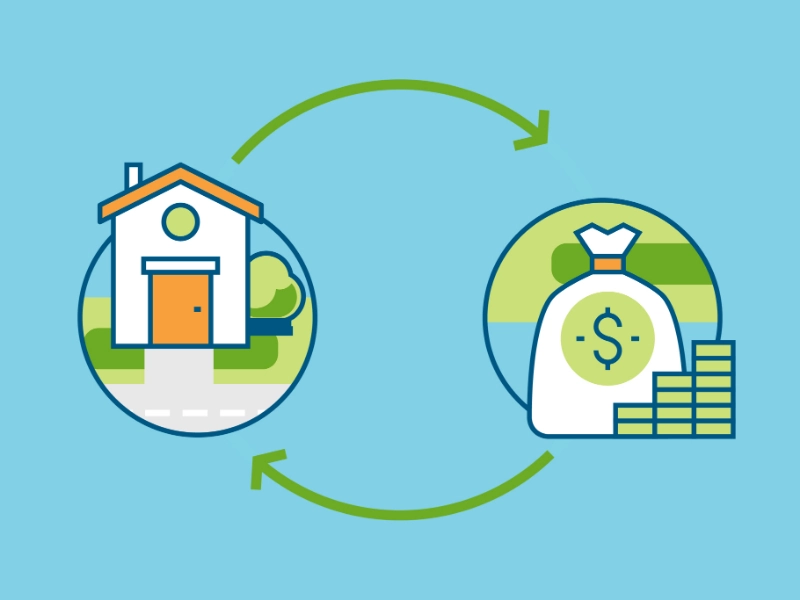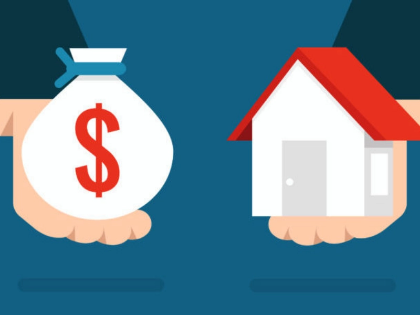Your Credit Score's Effect on Mortgage Loan Rates
For those applying for mortgages, a high credit score provides greater options than a low one. Good-credit borrowers are seen by lenders as less risky and thus typically receive lower interest rates. A lender uses your credit report and your three-digit credit score to determine how much of a danger you represent to them as a borrower. Additionally, a high score could make you eligible for a longer loan period.
Rates of interest

Initial Payment
 A high credit score can lead to more favorable terms and lower mortgage rates because it reduces your risk to lenders. However, it's crucial to realize that multiple scoring models are used by mortgage lenders to assess consumers, and your credit report specifically will affect your rate.
Numerous factors, such as payment history, debt utilization, and credit types used, are taken into account when calculating credit ratings. Your score will also be impacted by the duration of your credit history and any recent inquiries.
Although it's a picture of your creditworthiness, your credit score doesn't ensure that you'll obtain the best rates or be approved for a loan. When evaluating whether you're a qualified borrower, a lender will look over your entire credit history. If your credit falls below a predetermined threshold, they may raise your interest rate or force you to purchase private mortgage insurance (PMI). Before submitting a mortgage application, you can work to raise your credit score by reducing your credit utilization and paying off debt.
A high credit score can lead to more favorable terms and lower mortgage rates because it reduces your risk to lenders. However, it's crucial to realize that multiple scoring models are used by mortgage lenders to assess consumers, and your credit report specifically will affect your rate.
Numerous factors, such as payment history, debt utilization, and credit types used, are taken into account when calculating credit ratings. Your score will also be impacted by the duration of your credit history and any recent inquiries.
Although it's a picture of your creditworthiness, your credit score doesn't ensure that you'll obtain the best rates or be approved for a loan. When evaluating whether you're a qualified borrower, a lender will look over your entire credit history. If your credit falls below a predetermined threshold, they may raise your interest rate or force you to purchase private mortgage insurance (PMI). Before submitting a mortgage application, you can work to raise your credit score by reducing your credit utilization and paying off debt.
Insurance for Mortgages
 When deciding whether you qualify for a mortgage and what your interest rate will be, credit scores play a significant role. A three-digit score, though, is only a moment in time representing your entire financial history. Banks loan you money for a period of thirty years, during which time you may experience job changes, financial hardships, or several market cycles.
Lenders consider all aspects of your financial situation, including income, assets, and debt, when determining your creditworthiness. They also look over your debt-to-income ratio, which indicates how much of your monthly income is allocated to housing expenses, loan payments, and bill payments.
Industry experts advise against getting additional credit cards or loans since they could lower your credit score and make it harder for you to keep a good credit profile. Furthermore, try to refrain from requesting credit more than once, as this could result in a few points being deducted from your score. Even though a few points can seem like a big deal, they can result in thousands of dollars' worth of extra interest payments over the course of a mortgage.
When deciding whether you qualify for a mortgage and what your interest rate will be, credit scores play a significant role. A three-digit score, though, is only a moment in time representing your entire financial history. Banks loan you money for a period of thirty years, during which time you may experience job changes, financial hardships, or several market cycles.
Lenders consider all aspects of your financial situation, including income, assets, and debt, when determining your creditworthiness. They also look over your debt-to-income ratio, which indicates how much of your monthly income is allocated to housing expenses, loan payments, and bill payments.
Industry experts advise against getting additional credit cards or loans since they could lower your credit score and make it harder for you to keep a good credit profile. Furthermore, try to refrain from requesting credit more than once, as this could result in a few points being deducted from your score. Even though a few points can seem like a big deal, they can result in thousands of dollars' worth of extra interest payments over the course of a mortgage.
Credit Rating
 Lenders consider your credit score when determining whether to lend you money and what terms to give because it is a key sign of your financial reliability. Your chances of getting a cheaper mortgage loan rate increase with your score. Your credit usage rate—the ratio of the amount you owe to the amount you have available to you—your credit utilization history, and the total amount owed on all of your credit accounts make up your credit score.
Your credit history's duration, the kinds of credit you own, and the recent credit queries you've made are further variables. Your score is determined by taking into account each of these elements, and mortgage lenders typically prefer to see a low credit use ratio and a robust variety of credit types. Pay your bills on time to raise your credit score. You should also aim to stay away from hard requests for your report or fresh credit application inquiries.
Lenders consider your credit score when determining whether to lend you money and what terms to give because it is a key sign of your financial reliability. Your chances of getting a cheaper mortgage loan rate increase with your score. Your credit usage rate—the ratio of the amount you owe to the amount you have available to you—your credit utilization history, and the total amount owed on all of your credit accounts make up your credit score.
Your credit history's duration, the kinds of credit you own, and the recent credit queries you've made are further variables. Your score is determined by taking into account each of these elements, and mortgage lenders typically prefer to see a low credit use ratio and a robust variety of credit types. Pay your bills on time to raise your credit score. You should also aim to stay away from hard requests for your report or fresh credit application inquiries.









